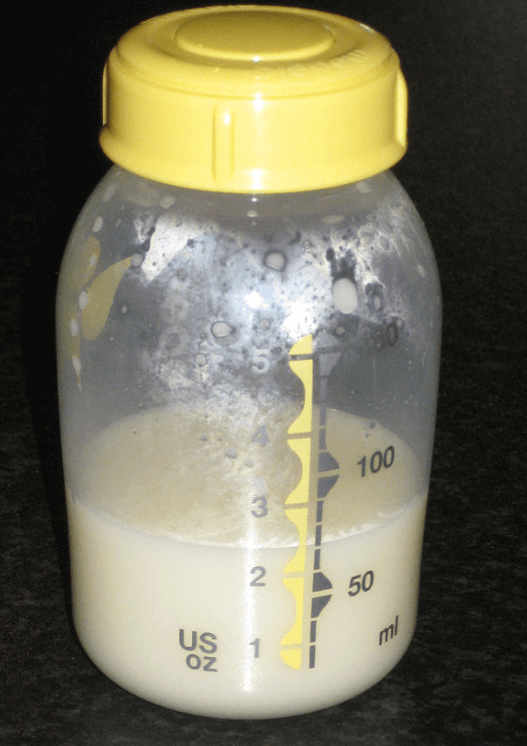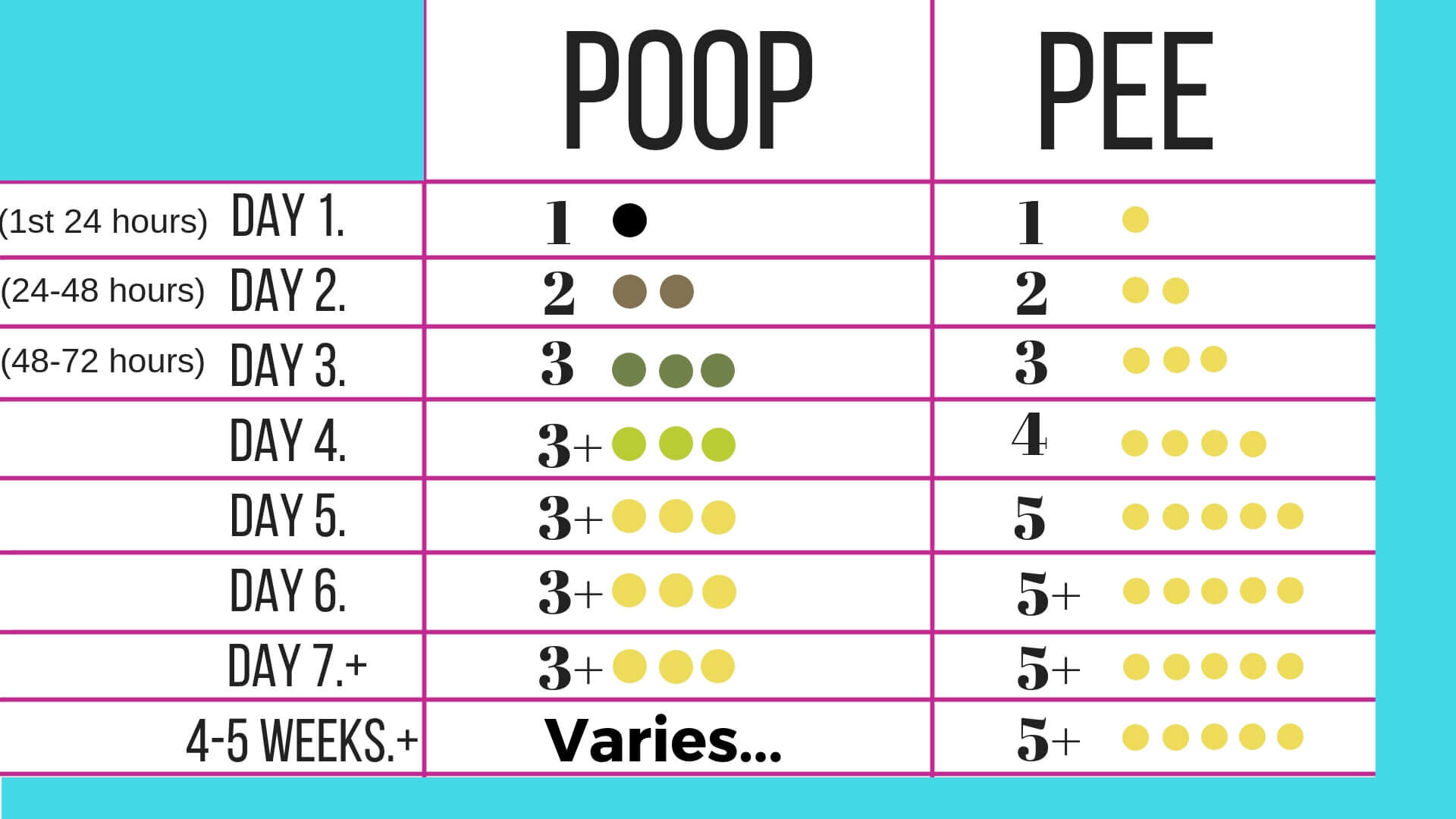The Real Signs of Low Milk Supply (and 12 Fakeouts!)
If you’re worried you’re not making enough milk you are SO not alone…
Many women think they have low milk supply when they actually don’t!
Concern over milk supply is the #1 reason women say they give up breastfeeding.
...and it’s no surprise. Milk supply is TRICKY!
There are many behaviors your baby will do and lots of things your body will do that’ll make you doubt yourself and your ability to make milk.
That’s why it’s SUPER important to understand what actually DOES and DOES NOT indicate a low milk supply.
(this post may contain affiliate links)
The 12 fakeout Signs of low milk supply:
(behaviors that are perfectly normal and do NOT indicate signs of low milk supply)
1. Your breasts don’t feel full of milk.
For the first six weeks of a newborn’s life, most exclusively breastfeeding mothers produce MORE milk than a baby actually needs.
This period is often referred to as the “engorgement period,” as the breasts can constantly feel full and heavy.
After about 6 weeks there’s a hormonal shift which often results in softer breasts.
This is a normal transition as the body gets better at regulating how much milk to make based on how much is being removed.
2. Your baby wakes in the night middle of the night.
Night-waking is absolutely normal for all babies and breastfeeding in the middle of the night is encouraged and one of the best things you can do for your milk supply.
3. The length of your baby’s feeds are erratic.
Just as adults vary the amount they eat throughout the day, babies too take different amounts of milk at each feed.
4. You don’t feel the sensation of a let-down.
Some women never feel a let-down and some feel it in the early weeks and then don’t feel it as much as their supply regulates.
5. Your baby wants to breastfeed frequently.
Breast milk is quickly and easily digested (in about 90 minutes), so breastfed babies need to eat very frequently.
Plus, all babies occasionally go through growth spurts where they feed more frequently for a few days in a row to bump up your milk supply. Trust your body and feed on demand.
6. You have an unhappy baby.
Some babies are fussy. This can have many reasons besides being hungry.
7. Your baby is fussy before bedtime.
Right before bed is a common time for cluster feeding where baby is only happy at the breast, being fed.
8. You don’t pump very much.
The amount of milk you pump is NOT a good indicator of your actual milk supply. A baby with a good latch is much more effective at getting milk out of the breast than a pump.
Some women don’t respond well to a pump but still have a healthy milk supply and create plenty of milk for their baby.
Want to get more milk out each time you pump? Try THIS cool little gadget!
9. Your breasts don’t leak or stopped leaking.
The amount of leakage varies from woman to woman and often stops completely once your milk supply is regulated.
10. Your baby starts to decrease the length of their feedings.
As babies get older they tend to get more efficient at getting milk out and will take less time to eat.
11. Your baby drinks a bottle after breastfeeding.
Many babies will happily take a bottle after drinking at the breast and this does not show they’re not getting enough or that you’re not making enough.
12. Your baby suddenly increases his/her frequency of nursing.
This behavior is associated with a growth spurt where babies will increase the frequency and duration of their feeds for a few days in a row (up to a week) to bump up your milk supply to meet their demands.
Follow your baby’s cues, feed on demand, and your body will respond by making enough milk!
Signs that you actually do have low milk supply:
The following are the actual REAL signs of low milk supply and show that your baby is NOT getting enough milk…
1. Poor weight gain.
It’s absolutely normal (and expected!) for newborns to lose weight after birth!
They typically lose 5% to 7% of their birth weight in the first few days postpartum– some lose up to 10%. However, after day 4 they should begin reversing the weight loss and be back to their birth weight by day 10-14. After that they should be gaining about 4 to 7 ounces on average per week.
If your baby has lost more than 10% of their birth weight in the first few days, hasn’t started gaining weight by days 5-6 postpartum, or is not gaining enough weight weekly, you should seek medical advice immediately.
2. Not having enough wet or dirty diapers for their age.
If your baby is not peeing or pooping enough for their age it’s a sign that they’re NOT getting enough milk.
Make sure you log their pees and poops per 24 hours (especially in the early days) to keep track of their output!
3. Your baby is dehydrated.
Signs of dehydration include dry mouth, irritability, dark urine, tearless crying, and sunken eyes and fontanelle (the space between the bones of the skull that aren’t fully formed in infants).
If your baby is showing any signs of dehydration, call your doctor immediately.
Things that may contribute to a low milk supply:
Baby doesn’t have a good latch and doesn’t remove milk well (ex: from anatomical issues like tongue-tie, lip tie, cleft palate, etc.)
Baby doesn’t get enough time at the breast
You don’t eat enough calories. Exclusive breastfeeding requires eating an additional 500 calories per day.
You don’t drink enough fluids. While drinking extra water will not increase your milk supply, becoming dehydrated can decrease your milk supply.
You don’t get enough rest
Stress
Waiting too long to begin removing milk after birth
Not removing milk from the breast often enough
Supplementing with formula. Your baby may take less milk from your breasts, which in turn could cause your breasts to produce less milk.
Certain medications (ex: some oral contraceptives, antihistamines, etc.)
Certain medical conditions (ex: maternal obesity, premature birth, pregnancy-induced high blood pressure, hypoplasia, anemia, diabetes, excessive blood less during birth, retained placenta, history of thyroid or hormone disorders, previous breast surgeries or breast trauma)
Not breastfeeding or pumping at night. Prolactin levels (the hormone responsible for signaling the breasts to make milk) is highest at night and breastfeeding at night is essential for keeping milk production high.
Decreasing the number of times you feed or pump
An illness (especially with a fever)
Drinking alcohol
Becoming pregnant (your milk supply may decrease when you get to be around 20 weeks pregnant)
The return of your period
Pacifiers. Any artificial nipple given to an infant in the early weeks of breastfeeding can reduce your milk supply because all of baby’s suckling should be at the breast to stimulate production.
Scheduled feedings rather than feeding on demand
A sleepy baby
Limiting the length of feeds instead of letting the baby decide when they’re done
Smoking tobacco
What to do if you have low milk supply:
If you suspect you have a low milk supply contact your healthcare provider immediately. Working with an International Board Certified Lactation Consultant (IBCLC) can help you determine the best way forward for you and your baby to boost your supply.
Get this free cheat sheet! Top 10 Tips to Increase Milk Supply
How To Know If Baby Is Getting Enough Milk:
1. Healthy weight gain.
There’s no better sign of a good milk supply than if your baby is gaining weight!
If your baby begins gaining weight by day 4, is back to birth weight by day 14, and begins growing along their growth curve at each doctor’s visit - you’ve got absolutely nothing to worry about!
2. Adequate wet/dirty diapers for their age.
3. Your baby shows no signs of dehydration.
Their pee is light yellow or colorless.
So, If your baby is gaining weight, has enough wet and dirty diapers and isn’t dehydrated, you can rest assured your baby is well nourished and there’s absolutely no SIGNS THAT YOU HAVE low milk supply!
Our 3 Fav Breastfeeding Products
🌛 1. This nursing bra is the absolute BEST for breastfeeding at night. It’s super comfy and made of the softest material ever.
💪 2. Boost supply and tone up postpartum. Grab this 28-day plan made just for breastfeeding moms — 50+ slimming, milk-boosting recipes and quick 20-min workouts (yep, even baby-wearing + pelvic floor ones!). Get 10% off Milky Mama’s Postpartum Plan using the code STACEY10 at checkout
🤱 3. If your nipples are sore,these are an absolute lifesaver. They’re super cheap, can be worn for multiple days (perfect when you’re trying to get a good latch), and are soooo soothing.
Related post about milk supply:




